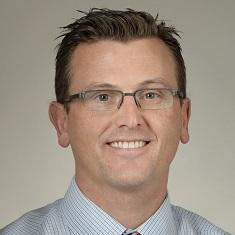
Research Topics
Dr. Roschewski’s clinical research is focused on developing rational biologically based treatment combinations for patients with B-cell lymphomas. The Roschewski clinical team works closely with the laboratory operated by Lou Staudt to understand therapeutic vulnerabilities within genetic subtypes of lymphoma as well as the world-renowned hematopathologists, Elaine Jaffe, and Stefania Pittaluga, to precisely define and characterize each patient’s tumor. These tight collaborations allow for novel observations from the bench to be translated to the clinic and novel observations at the bedside to be further investigated in the lab.
A defining feature of the clinical operations in the Lymphoid Malignancies Branch (LYMB) is to focus on the treatment of lymphomas that are currently not well served by standard approaches such as high-risk subtypes of diffuse large B-cell lymphoma, Burkitt’s lymphoma, and lymphomas involving the central nervous system. Dr. Roschewski’s team is also prospectively investigating the clonal evolution of follicular lymphoma to better characterize the molecular biology of high-risk subsets. The clinical trials within the LYMB employ a strong emphasis on correlative science, including comprehensive molecular profiling of tumors and circulating tumor DNA which is an emerging biomarker that can noninvasively provide unique genomic information and may aid in clinical decision-making in the future.
Current clinical trials are testing combinations that add targeted agents such as Bruton tyrosine kinase (BTK) inhibitors to chemotherapy, including the temozolomide, etoposide, doxil, dexamethasone, ibrutinib, rituximab (TEDDI-R) for central nervous system (CNS) lymphomas and acalabrutinib with chemotherapy for diffuse large B-cell lymphoma. These trials build on observations from the Staudt lab that genetic subtypes of lymphomas are uniquely sensitive to targeted inhibitors of B cell receptor (BCR) signaling. Another regimen being developed in the LYMB is a combination of targeted agents that includes venetoclax, ibrutinib, prednisone, obinutuzumab, and revlimid (ViPOR) for patients with aggressive B-cell lymphomas, including those involving the CNS. Finally, the anti-CD47 monoclonal antibody, magrolimab, is being tested with venetoclax and obinutuzumab (VENOM) in patients with relapsed and refractory follicular lymphoma and other indolent B-cell lymphomas.
Biography
Dr. Mark Roschewski received his B.A. from the University of Notre Dame in 1997 and his M.D. from the University of Nebraska Medical Center in Omaha in 2001. He completed internal medicine residency training while serving in the U.S. Army and completed his hematology-oncology fellowship in 2009 at Walter Reed Army Medical Center (WRAMC) in Washington, DC. He served as the Director of Hematologic Diseases at WRAMC for 3 years before joining the NIH as a Commissioned Corps officer in the United States Public Health Service in 2013. Dr. Roschewski's current role is as a Senior Clinician in the Lymphoid Malignancies Branch with a clinical research focus on the biology and management of patients with both indolent and aggressive forms of non-Hodgkin's lymphoma.
Selected Publications
- Roschewski M, Staudt LM, Wilson WH. Dynamic monitoring of circulating tumor DNA in non-Hodgkin lymphoma. Blood. 2016;127(25):3127-32.
Related Scientific Focus Areas
This page was last updated on Friday, March 14, 2025

